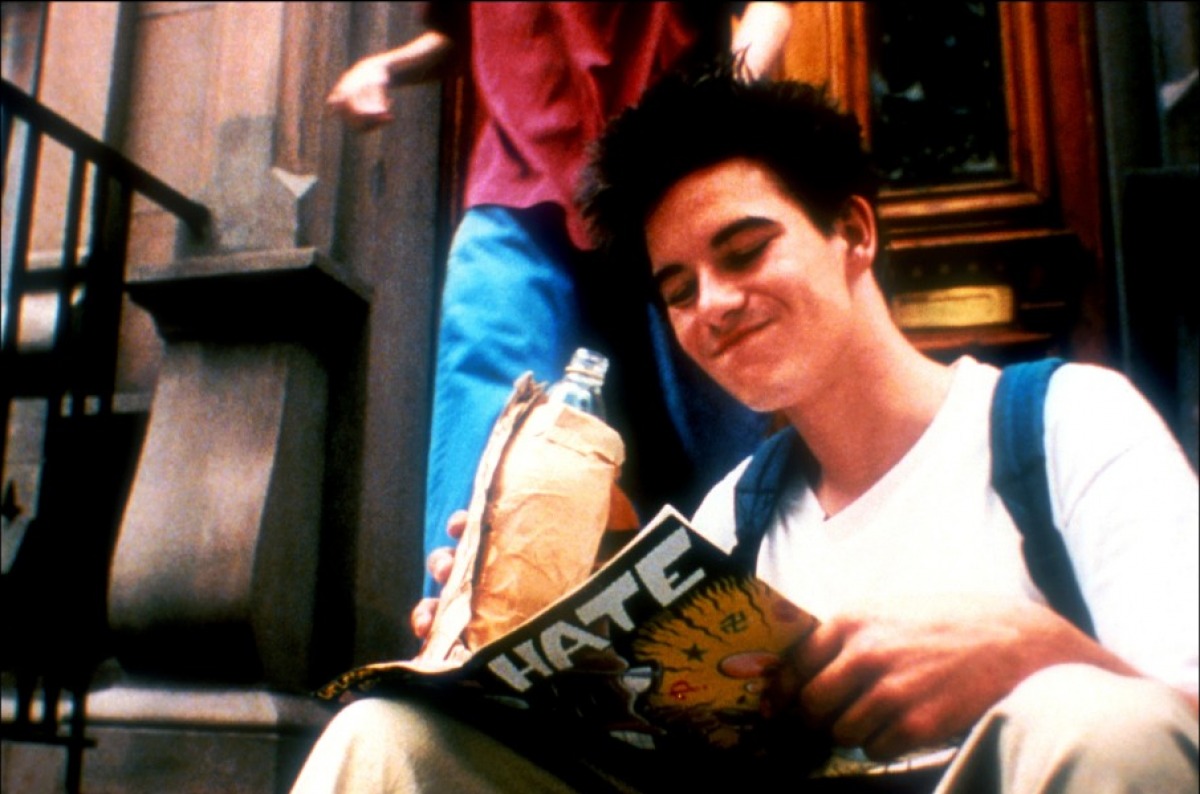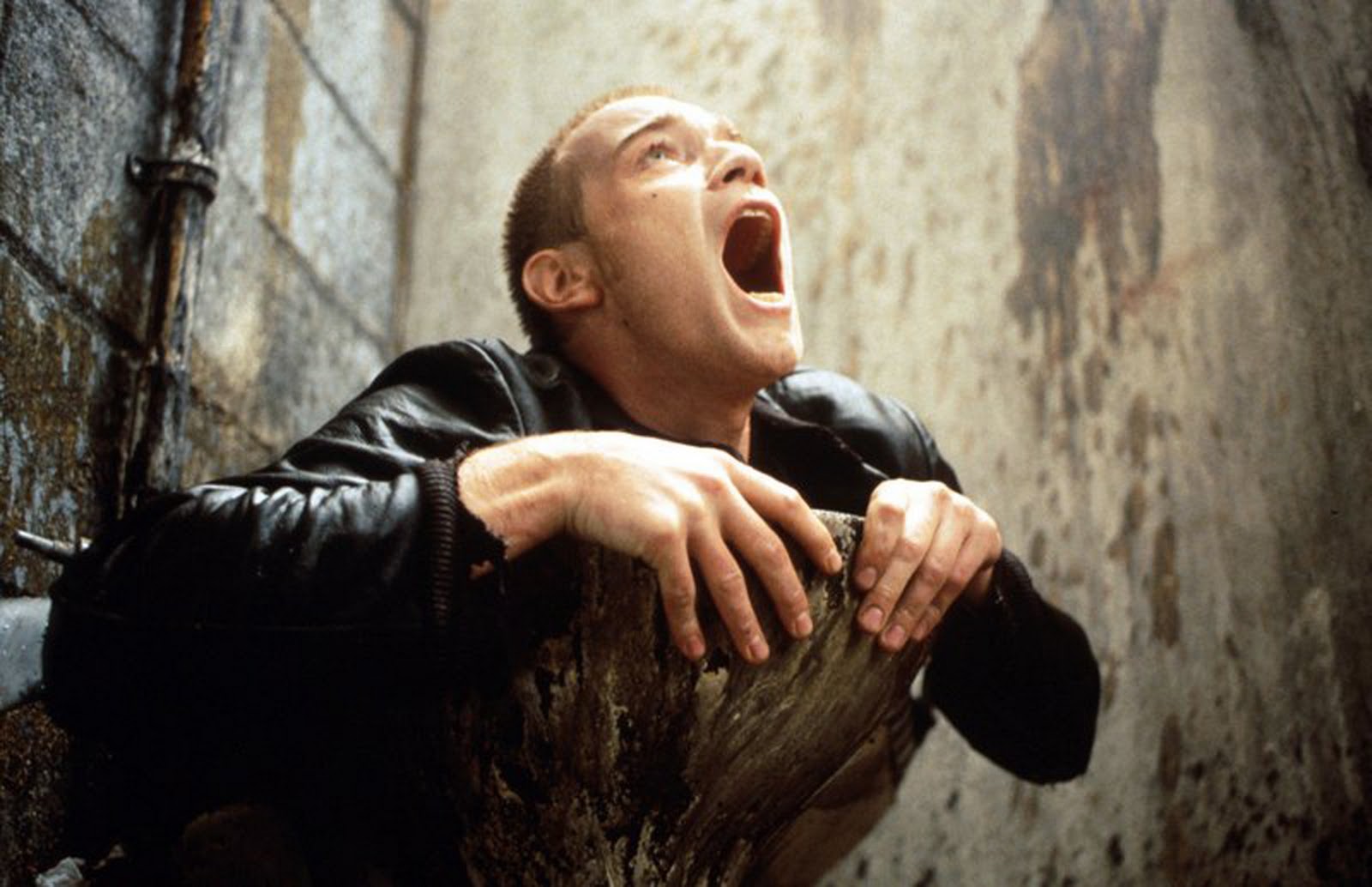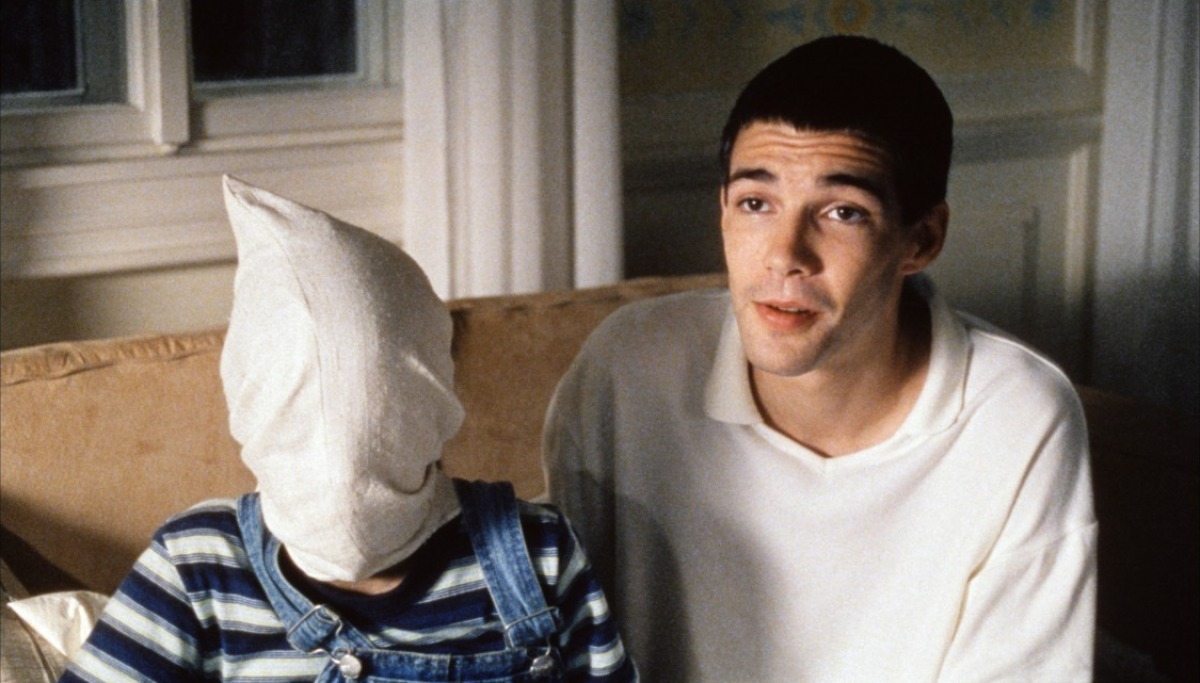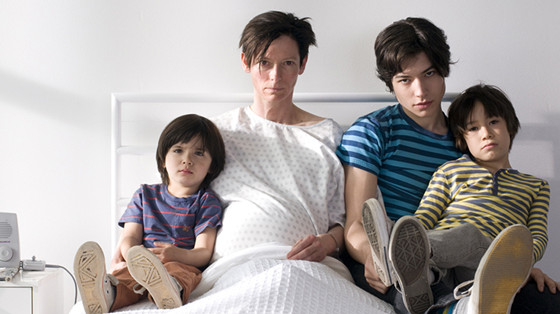14. Kids (Larry Clark, 1995)

This was a wake up call to the older generation; it features teens having unprotected sex during the AIDS scare of the 1990’s, abusing plenty of alcohol and other substances, and little or no adult supervision; this is a kid’s world of skateboarding and hanging out, of raves and sneaking money from mom’s purse, of talking trash about other kids and getting laid.
It is said that Larry Clark wanted to make “the great American Teenage Movie, like the Great American Novel.” Well, this ain’t no feel good John Hughes Rom-Com; Clark filmed this in a quasi-documentary style, even though the entire thing was from a script written by Harmony Korine.
The key to Kids was Clark casting mostly inexperienced youths from local skate parks and other urban hangouts and Korine’s script. The main character Telly (Leo Fitzpatrick) is infected with HIV and he infects first time sexual partner Jennie (Chloë Sevigny); she spends the rest of the film on a Dante’s Inferno like quest to find him before he sleeps with another victim.
While Jennie searches for Telly we are witness to lots of goofing off, drug abuse, various crimes and a general disaffect towards life. It seems that the kids we saw earlier in Over the Edge and River’s Edge have spawned reproductions of themselves and they care even less than their predecessors. A gritty realistic view of today’s youth and their aimless values.
15. Trainspotting (Danny Boyle, 1996)

Here we are now in the late 1980’s in economically challenged Edinburgh; as we listen to the pulsing beat of Iggy Pop crooning Lust for Life, we are introduced to our characters: Heroin addict Mark “Rent Boy” Renton (Ewan McGregor) is our main character and he has decided that he is going to quit shooting heroin; his pals include the usual bunch of amoral drug loving degenerates: con artist Simon “Sick Boy” Williamson (Jonny Lee Miller) also an addict, friendly Daniel “Spud” Murphy (Ewen Bremner), also an addict, and finally the psychopathic Francis “Franco” Begbie (Robert Carlyle); just plain violent. Renton plans on checking into a hotel room and to wait for the nausea of withdrawal to pass and when it does he finds that his sexual prowess has returned.
So it is off to the pub to heist a few with his mates and it is here that meets hot to trot Diane(Kelly Macdonald); but after a night of lovemaking, it turns out that she is only 14; talk about a rude awakening! The rest of the film details these lovable losers as they plan to kick drugs repeatedly and plan a heist that will finally allow Renton a chance to live a relatively normal and safe life.
16. Funny Games (Michael Haneke, 1997)

It’s time to talk a walk on the wild side of cinema and we get to see Michael Haneke’s darkly humored Funny Games. Haneke is Europe’s master of the cinema of isolation and he often examines the effects of various assorted social issues in modern day society.
In Funny Games, Haneke toys with the audience’s expectations of screened violence, and even though this film is rather chilling in tone, the director essentially cheats the audience that is seeking an exploitative experience, and instead makes a bigger statement about cinema, our intentions as a viewer, and the role of cinematic entertainment in our lives.
Taking the basic and overly familiar premise of the home invasion film, Haneke instead manipulates the plot in such a way that the viewer is transformed from passive subject to being an active accomplice to the evils being committed on the screen.
“’Funny Games’ is an anti-genre film….It moves like a thriller, it has a thriller’s structure, but at the same time it comments on itself” Haneke stated in an interview to the New York Times.
Viewing Funny Games is a chilling experiment that provokes the viewer into questioning their own motives, pushing the limits of the cinema experience and challenges the status quo of ordinary movie watching. This review refers to the original foreign language of the film. An American version of the film, by the same director but with a different cast, is available; it was produced in 2007 and stars Tim Roth and Naomi Watts.
17. Elephant (Gus Van Sant, 2003)

Much has been written and said about the 1999 Columbine High School shootings and now we have Gus Van Sant’s film Elephant for our viewing. There is no denying the horrors of a real life incident; as a society we will forever remained marked by this event, and like Van Sant, there is nothing that I can add to all the previous discourse to explain or understand the acts of two obviously disturbed individuals.
Taking place in the fictional Watt high school in Portland, Oregon, Van Sant recounts the details of an ordinary day at a suburban high school until something happens to shatter the ordinariness and then the day becomes something else.
Using a pseudo-documentary style of filmmaking, Van Sant’s all-seeing camera eye is witness to all the events leading up to the tragedy that follows, but he offers no easy explanations or excuses; Van Sant simply allows his camera to trail along various students as they make their way to and from class, discussing mundane events, including the killers Alex (Alex Frost) and Eric (Eric Drulen).
Utilizing long tracking shots, Van Sant gives the impression that all of this is happening spontaneously and that we are uneasily placed in the position of being voyeurs to everything that is unfolding; like the students of Watt, we too are helpless and cannot stop the killers as they make their way through the schools hallways.
There are no overt signs that the shooters were anything other than ordinary teens; they are shown lingering on the outer edge of school society, they are shown discussing the fact that neither one has been kissed, they are like most teens: angst ridden, alienated, bored, and relatively vapid, but inevitably still teens and still human.
If anything Van Sant has presented us with a true picture of horror with moments of dazzling beauty, and a lot of time where absolutely nothing happens except the passage of time itself. An amazing experience.
18. Bellflower (Evan Glodell, 2011)

The state of being a teenager is a temporal one. Often we find, as one ages and leaves the community to enter college, the military or the job market, we usually leave behind the friends that we have made during our earlier formative years.
Bellflower is a film that examines the subject of teen friendship and what happens when outside forces interrupt the closeness of this friendship. Woodrow (Evan Glodell) and Aiden (Tyler Dawson) are two teens that have left Wisconsin for the city of Bellflower, California; they both are fascinated with the idea of a global apocalypse and they build weapons such as a flamethrower to help pass the time.
Bellflower is an impressive film debut with Glodell acting as director, special effects designer, and screenplay writer. Some have criticized the poor acting by its major players, but I have not taking exception to that, instead focusing on the dazzling cinematography, the inventive camera work and, of course, that bitching car.
19. We Need to Talk About Kevin (Lynne Ramsay, 2011)

What do we do with the parents of children that have committed unforgivable acts? Do we accept them because they have suffered too, do we punish them because they were the ones that brought this individual into the world, and do we bang on their doors at night and torment them because they are responsible for the evil acts that their offspring have committed?
Lynne Ramsay’s intelligent and difficult film examines the problem of evil and what role does society play, if any, in punishing both the evil doer but also the parent of that child.
Director Ramsay wisely doesn’t offer any solutions to the puzzle and lets the questions sit with the viewer instead. Tilda Swinton does an admirable job as Eva; as a mother she is placed in the unenvious situation of being the only person that seems to be able to openly recognize the evil blankness that is her son, but is it just her perceptions or is her son truly a monster?
Obviously his actions ultimately prove her right, but so what? All that is left is her own guilt and self-awareness and when she asks Kevin why he did what he did, she only receives a sphinx-like response.
When questioned about the motivation of why she made the film the way she did, Ramsay responded “‘she was intrigued by ‘the mother-son relationship,’ this ‘perverse love story.’ We Need to Talk About Kevin, asserts Ramsay, is ‘about the unexplainable. That sometimes evil comes from some, you know, somewhere unexplained.'” Too true.
20. Spring Breakers (Harmony Korine, 2012)

College students Brit (Ashley Benson), Candy (Vanessa Hudgens) and Cotty (Rachel Korine) are making plans for Spring Break in Florida; their other friend, the more grounded Faith (Selena Gomez) spends her time with a religious group on campus in Kentucky.
Director Harmony Korine views the offenders as purely eye candy and his camera ogles the young flesh in close ups that make one dream of lap dances. The girls all land in the slammer until a knight with gleaming grill work shows up to make the rescue; enter rapper/gangster/hustler Alien (James Franco); he of steady patter and smooth talk. Alien springs the girls from the joint with some ready cash and the girls are duly impressed.
Later at his swank pad, he thrills the girls with his crazy display of wealth, guns, drugs and guns…did I mention guns? Yes, Alien is certainly the host with the most and soon the girls are all swooning, except for Faith, who wisely decides to cut out on this party animal and returns home. The remaining trio of girls are seduced by Alien’s charms and soon they are talked into carrying real weapons and executing drive-bys; but is a life of crime all that it is cut out to be?
In the end Alien is dead, shot by his enemy Big Arch (Gucci Mane)but the girls swing into action and gun him and his gang down; the last scene is of them driving back to the gangster pad in Arch’s Lamborghini. Is this the new American dream? Are we re-living the 1920’s but through a different filter?
Is Korine’s film a re-visited Warner Brothers gangster picture, but updated and re-cast for today’s audience? Korine isn’t offering any hard answers, he’s just playing some gangster rap and showing us the neon lights of the beach at night.
Author Bio: Robert Segedy is a writer that lives outside of Chapel Hill, North Carolina; a self-professed film maniac, he loves horror and cult films, old comics and true crime books. A former longtime bookseller he now lives a quiet life with his wife Jennifer and two cats and the loudest dog in the world.